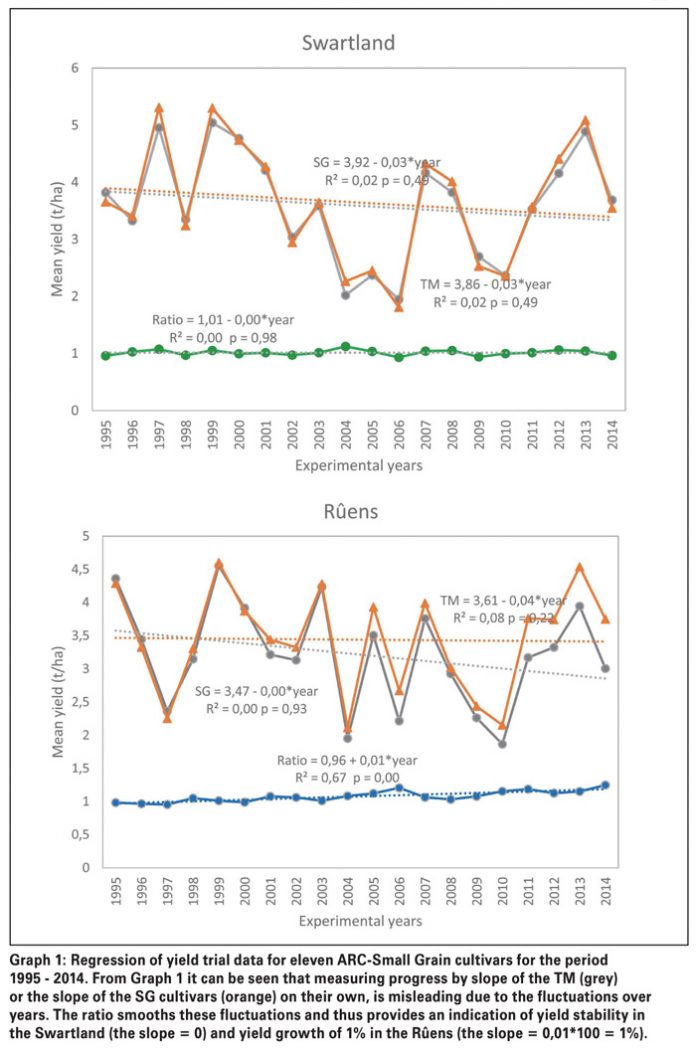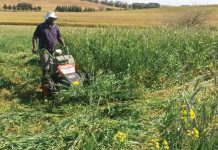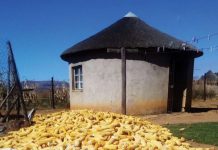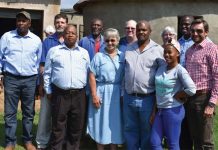October 2017
Dr Ian Heyns and Dr André Malan, ARC-Small Grain, DR Mardé Booyse, ARC-Biometry and Prof Maryke Labuschagne, Department Plant Sciences, University of the Free State
Wheat is considered one of the primary staple foods in South Africa with an annual consumption of 3,2 million tons. It is estimated that 1,4 million tons will be imported this year. Yield improvement of new wheat cultivars is therefore an important aspect of wheat production in the Western Cape, which is considered the ‘bread basket’ of South Africa.
However, the genetic gain in yield of cultivars released by the ARC-Small Grain in the Western Cape has never been determined before and a study was conducted to determine the progress made in yield performance of ARC-Small Grain cultivars released in the Western Cape over the past three decades.
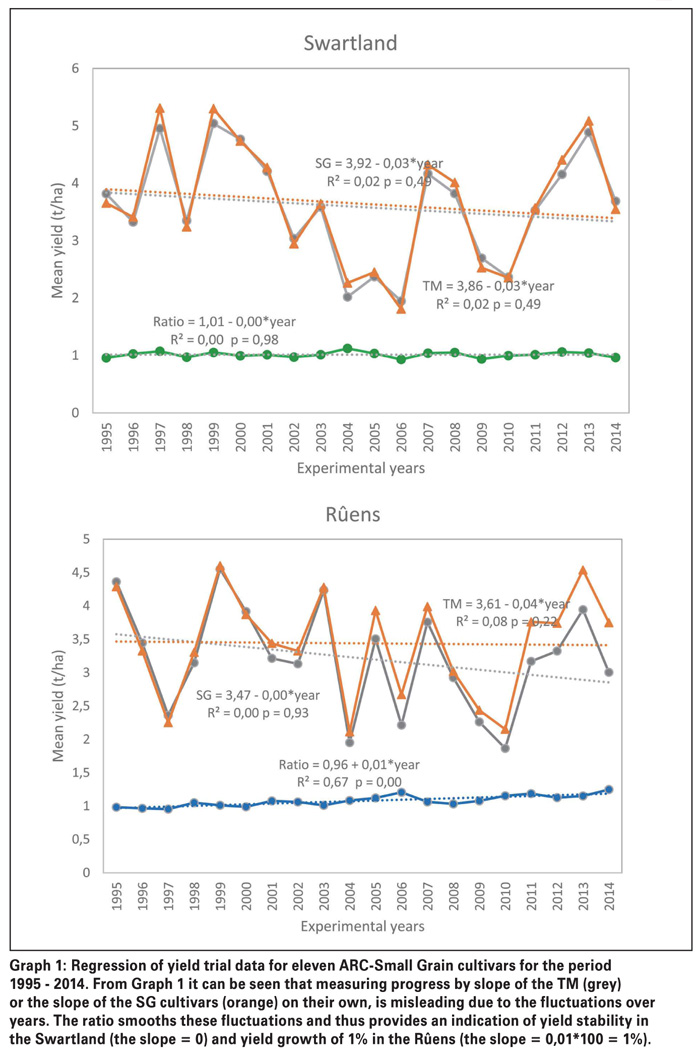
Study outline
Measuring progress in breeding for grain yield in drought-affected environments is frequently confounded by seasonal fluctuations in weather conditions. A method that eliminates the environmental effect (Trethovan et al., 2002) was therefore used to analyse the data in order to determine the progress made in yield.
In this study, yield trial data for eleven ARC-Small Grain cultivars (released between 1980 and 2012) was collected for the period 1995 – 2015. These cultivars were cultivated under various environmental conditions in the Swartland (five sub regions) and Rûens (three sub regions).
The yield trials consisted of between 15 and 30 entries arranged in a randomised block design with four replicates. Check cultivars, representing the best adapted cultivars for the various regions, were included for each of the yield trials. The mean yield for the ARC-Small Grain cultivars from each site and year was calculated and expressed as a ratio of the trial means.
The ratio, trial mean and mean of the cultivars were regressed against each year to assess gains in yield over time using linear regression analysis similar to the proposed method of Trethovan et al., 2002.
In Graph 1 the mean yield for the ARC-Small Grain cultivars (SG) from each site and year was calculated and expressed as a ratio of the trial means (TM). These values were regressed against each year to assess gains in yield over time using linear regression analysis similar to the proposed method of Threthovan et al., 2002.
Results
The method of Trethovan et al., 2002 was used to eliminate environmental effect and to measure the progress made for genetic grain yield over a period. Trial means and trial means for ARC-Small Grain cultivars calculated for the Rûens and Swartland showed a reduction in yield for both these regions.
However, the regression of ARC-Small Grain’s cultivars expressed as a ratio of the trial means (ratio) against year showed an annual genetic gain of 1,14%/year for the Rûens whereas a negative genetic yield gain of -0,01%/year was observed for the Swartland. The genetic yield gain achieved in the Rûens correlates well with the international progress made for yield improvement of between 0,7% and 1,3% per annum.
In order to keep up with the increased demand for wheat and to make it economically viable for producers to produce wheat, the primary aim of the ARC-Small Grain wheat breeding programme is to develop and release new improved high yielding cultivars that are well adapted to conditions in the Western Cape.
That goal in mind, the ARC-Small Grain released Ratel in 2011 and Steenbok at the end of 2016. Both Ratel and Steenbok are mid-season cultivars that are well adapted to conditions in the Swartland and Rûens.
Future of wheat production
Wheat production in the Western Cape is here to stay despite a number of challenges in the industry. The ARC however, has committed itself to the development of high yielding cultivars that will perform under extreme conditions – even drought.
The ARC is in the process of developing an exciting range of new wheat cultivars with improved yield. These lines will be visible on farmers days in the Swartland and Overberg and producers are invited to come and see these exciting new lines. We wish all producers good harvests for 2017.
For more information, contact the authors at heynsi@arc.agric.za, malana@arc.agric.za, booysem@arc.agric.za or labuscm@ufs.ac.za.
Reference
Trethowan, RM, Van Ginkel, M and Rajaram, S (2002). Progress in breeding wheat for yield and adaptation in global drought affected environments. Crop Science 42:1 441 – 1 446.
Publication: October 2017
Section: Focus on


